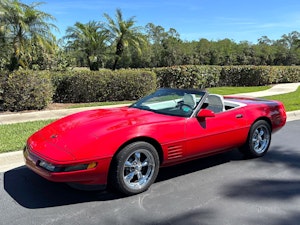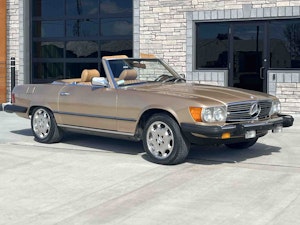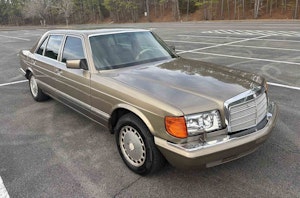Media | Articles
Divorce: How to Keep Your Car
Divorce has got to be one of the greatest hardships that one can endure. Losing a spouse, and perhaps even children at the same time, is a tragedy that I, as a happily married man, can’t begin to fathom. As an attorney, though, I know it’s important to be able to put the emotion aside and focus on the pragmatic when going through a divorce, so as to be able to begin a new life in as favorable a position as possible. This is particularly true when collectible or exotic cars are involved, as one spouse may feel a deep attachment to the vehicles, and the other spouse may have no interest, or worse, use this attachment as a weapon. As an enthusiast, the only way I can imagine to make a divorce any harder would be to lose a spouse and a collector car in the same “transaction.”
It isn’t by accident that I refer to divorce as a transaction. When attempting to negotiate a divorce settlement, it’s best to view the entire process much as one might view the dissolution of a business (and it’s generally better for all concerned to negotiate a settlement than leave it to the courts). The best results will be reached (although this is often not possible) when both spouses can negotiate at arms length, through their attorneys, without allowing their personal feelings to cloud their judgment. In these negotiations, it might be possible for an enthusiast’s spouse to keep his or her cars, particularly if the spouse is aware of some generally applicable rules that may make this an easier accomplishment. *
[* Please note that these rules don’t necessarily apply in all states or jurisdictions, nor are they applied in the same way in all jurisdictions. In the event that you are considering, or are involved in a divorce, only a consultation with a qualified matrimonial lawyer will suffice to properly determine your rights and the law to be applied in your particular circumstance.]
The first thing to keep in mind is that, generally speaking and in most jurisdictions, any assets (i.e., collector cars) that a spouse brought into the marriage aren’t part of the marital estate. In other words, if a spouse owned some cool cars before getting married, he or she automatically keeps those cars in a divorce. Additionally, any property that a spouse receives as a gift or inherits from a third party during the marriage automatically keeps that property in a divorce, so long as the gift or bequest was made specifically to the spouse in question and not to the then-couple. So, if Harry Husband is given a Ferrari 330 TRI/LM by his favorite uncle, he keeps it in a divorce, just like Wilma Wife keeps the Dino 206 SP she inherited from her mother.
The second important rule that may help an enthusiast keep his or her cars is the so called “10-year rule.” In many states, if the couple has been married less than 10 years (and particularly if there are no children and they haven’t kept joint bank accounts) the justice system views the goal of the divorce not as splitting the assets equally, but instead as putting each spouse back in the position they would have been in had they not gotten married. The practical consequence of this is that Mary MarriedOnlyFourYears has a very good chance of keeping her 750 Monza, particularly if she is childless and has paid for it solely with her personal funds (as opposed to joint/marital funds). To the contrary, Brad Breadwinner will have less chance of keeping his Porsche 911 if his marriage to Hillary Homemaker goes bad after 30 years (at least without giving up another marital asset of equal value, which is always an option), particularly if Hillary has multiple children with Brad and has never been employed.
Marketplace
Buy and sell classics with confidence
Finally, it’s important to note that even if the 10-year rule doesn’t apply, the marriage has been a long one, and all the cars were acquired during the marriage, this doesn’t automatically mean the enthusiast spouse is going to lose the hard-earned collection. Rather, these assets are just (with any luck and even an ounce of sound financial pl ann ing) a part of the marital estate (that is all the couple assets), and they must be viewed as such for the purposes of negotiating the divorce settlement. In this way, it may be possible to agree that the enthusiast spouse can keep the cars by agreeing to forfeit ownership of the other spouse’s art collection, the marital home or some other valuable asset. It’s almost always better to reach a settlement in this way rather than allow the courts to divide the assets, and the chances of a judge appreciating the value, importance, and liquidity (or lack thereof) of a car collection are slim.
In either event, seeking a qualified appraiser knowledgeable in the marque(s) featured in the collection will be of paramount importance. If this isn’t done, it’s very possible for one spouse to be treated unfairly as they might give up or receive more or less than the vehicle(s) are actually worth.
At the end of the day, I wouldn’t wish a divorce on my worst enemy: I can’t even grasp the pain that must come along with such an event. When attempting to endure it, though, it’s important to put that pain aside and focus on negotiating the best possible deal for one’s self. The information presented here is a good start down the road toward understanding matrimonial law as it applies to collector cars: The next step should be hiring a top-notch matrimonial lawyer and attempting to negotiate a fair but quick settlement so as to avoid financing the attorney’s Ferrari collection!
Alex Leventhal is an attorney and car collector living in New York City. His early practice experience included the representation of new-car dealers and dealer groups engaged in complex transactions, as well as other merger and acquisition business. Alex currently owns a Ferrari Berlinetta Boxer 365 GT4 and a Dino 308 GT4, along with an Aston Martin V-8 Vantage and other European collector cars. He’s also director of the Aston Martin Club of North America.










